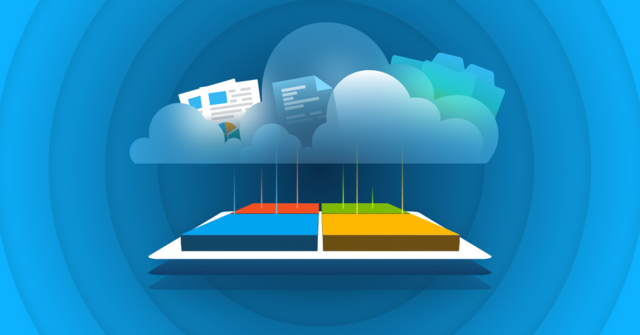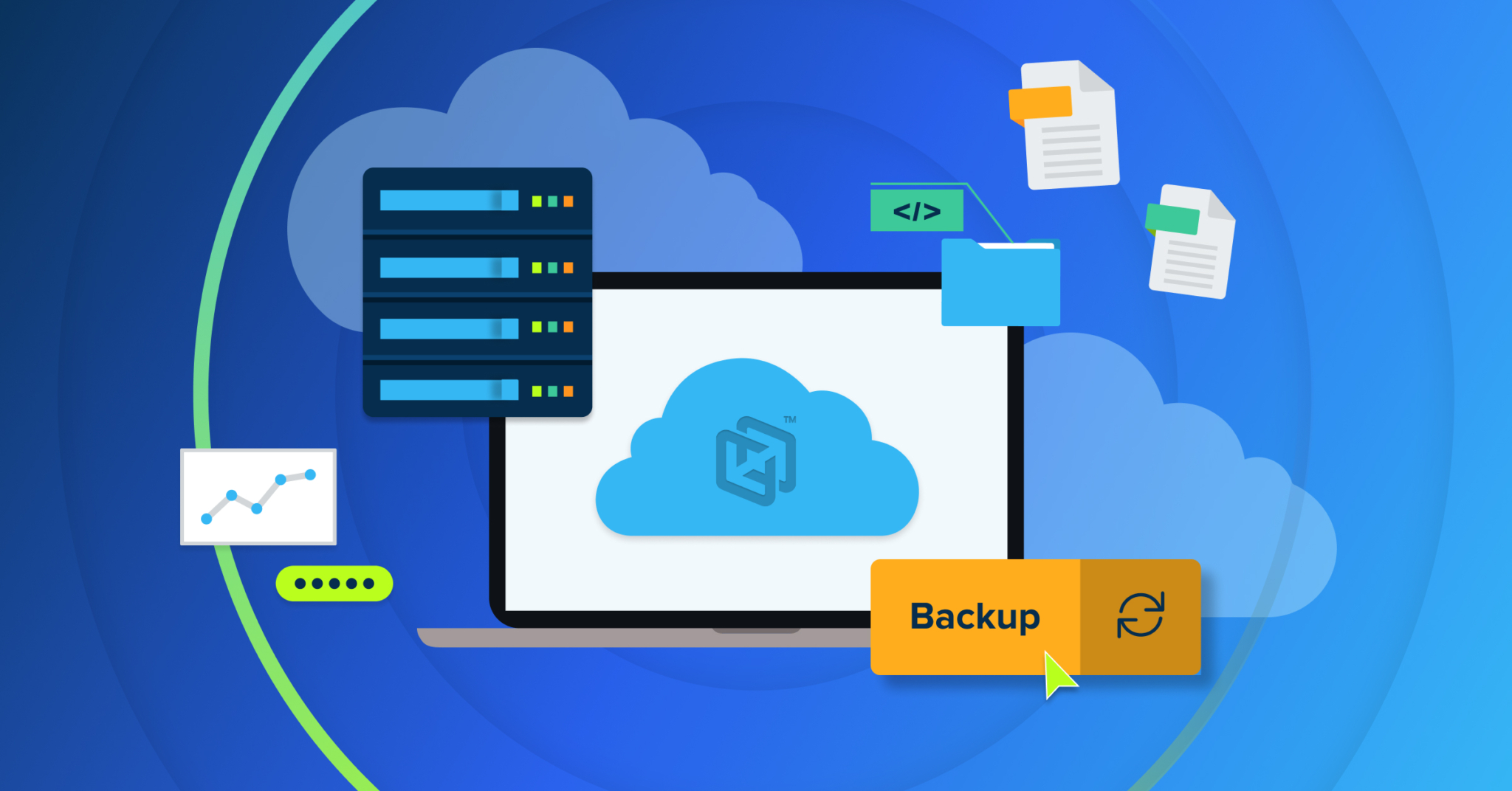
You probably use OneDrive every day. It’s built right into Microsoft 365, making file storage, sharing, and collaboration effortless. With automatic syncing and cloud access from anywhere, it feels like a safety net for your data. But, is OneDrive truly a backup solution, or does it need an extra layer of protection?
The short answer? OneDrive is great, but it’s not a true backup. And that’s where many businesses get caught off guard. Let’s explore why OneDrive is valuable, where it falls short, and how you can ensure your data remains secure and recoverable no matter what happens.
Here are some common myths about OneDrive’s backup capabilities and the realities behind them.
Myth 1: OneDrive already backs up my data
A common misconception is that because OneDrive syncs files across devices, it functions as a backup. However, syncing and backing up are not the same. When you delete or modify a file in OneDrive, the change is mirrored everywhere. If a file is lost due to accidental deletion, corruption, or cyber threats, it is permanently gone unless a separate backup exists. True backups create independent copies of data that remain untouched, regardless of changes to the original file.
Myth 2: I can always recover deleted files
This belief can be costly. While OneDrive offers a Recycle Bin for recovering deleted files, it operates within a strict retention window of 30-93 days. If you don’t restore the file before that period expires, the data is gone forever. Imagine a situation where an employee leaves the company, and their account is deleted—along with all its data. Without a backup solution in place, retrieving lost files after the retention period is impossible, leading to potential compliance violations and operational disruptions.
Myth 3: OneDrive protects against ransomware
While OneDrive does offer file versioning, it is not immune to ransomware attacks. Ransomware can encrypt files stored in OneDrive, and because the system syncs changes across all connected devices, the encrypted versions overwrite clean copies. Although Microsoft provides rollback options, recovering each file individually can be a tedious, time-consuming process. Moreover, some ransomware variants are designed to encrypt multiple file versions, making recovery nearly impossible without a separate backup. A dedicated backup solution ensures that immutable, untampered copies of data remain available, allowing for quick recovery without costly downtime.
Why businesses need a dedicated backup strategy
While OneDrive is great for daily operations, businesses need a dedicated backup solution to ensure long-term data security. Here’s why:
True data backup vs. file syncing
OneDrive syncs files across devices, but this isn’t the same as creating a backup. If a file is deleted or compromised, those changes are reflected across all connected devices.
Unlike OneDrive, dedicated backup solutions:
- Create independent copies of data stored separately from the original files.
- OneDrive’s retention policies are limited. Once data is permanently deleted after the 30-93 day retention period, it’s gone. A dedicated backup ensures that businesses can retain data beyond these default limits, meeting long-term retention needs.
- Prevent ransomware or malicious deletions from affecting backups.
Automated and scheduled backups
With a structured backup system in place, businesses can automate regular snapshots of their data, allowing for point-in-time recovery. This means that even if a system failure, cyberattack, or human error occurs, you can restore data from a specific moment without scrambling to retrieve files manually.
For example, if an organization is hit by a ransomware attack, OneDrive may not be able to recover all affected files quickly. But with a scheduled backup, businesses can restore clean versions of their data within minutes, significantly reducing downtime and minimizing financial losses.
Advanced security and compliance features
Many industries, including finance, healthcare, and legal sectors, have strict regulatory requirements for data storage, protection, and sovereignty. A dedicated backup solution offers features such as data encryption, role-based access control, immutable storage, ensuring businesses meet compliance standards like HIPAA, GDPR, and SOC 2.
Data Sovereignty
Data sovereignty has become a critical concern for businesses operating across different regions, as many regulations require that sensitive data be stored within specific geographic boundaries. Relying solely on OneDrive’s cloud infrastructure, which may store data in locations outside a company’s regulatory jurisdiction, could pose compliance risks. A robust backup strategy ensures that businesses can meet these stringent requirements by providing options for storing data in designated locations, preventing legal complications, and ensuring compliance with regional data protection laws.
Faster disaster recovery
Recovering from data loss using only OneDrive can be a slow and painful process. If ransomware locks up files or a mass deletion occurs, manually recovering each document can take days or even weeks—a costly and frustrating experience. A proper backup system, however, allows for complete dataset restoration within minutes, ensuring that operations continue with minimal disruption.
By implementing a backup solution alongside OneDrive, businesses can protect their data from loss, meet compliance needs, and ensure that they are always prepared for any unexpected incident. Consider a scenario where a ransomware attack encrypts all your OneDrive files. How quickly could you restore everything without a backup? Without a separate, secure backup, you’d have to manually recover each file version, a process that could take days or even weeks. The downtime could disrupt business operations, result in financial losses, and compromise sensitive information.
With a dedicated backup solution, you can restore complete datasets in a matter of minutes, ensuring business continuity with minimal disruption.
How to strengthen OneDrive with the right backup solution
OneDrive should be part of your data protection strategy, but it shouldn’t be your only line of defense. A proper backup strategy ensures your business stays resilient in the face of cyber threats, human errors, and compliance demands. The key is investing in a backup solution that offers scheduled, independent, and immutable backups.
Here’s how businesses can build a comprehensive backup strategy:
- Use OneDrive for file sharing and collaboration but not as a primary backup.
- Invest in a backup solution that provides independent, scheduled, and immutable backups.
- Set up long-term data retention policies to meet compliance requirements.
- Ensure ransomware protection by choosing a backup provider with immutable storage & encryption.
- Regularly test data recovery plans to ensure smooth restoration during an incident.
True Data Resiliency? Combine OneDrive with a Backup Solution
OneDrive is excellent for collaboration, but businesses should combine it with a true backup solution to protect against data loss, compliance risks, and cyber threats. If your organization relies solely on OneDrive, it’s time to rethink your data strategy. A backup solution adds an essential layer of security and resilience, ensuring your business is prepared for anything.






